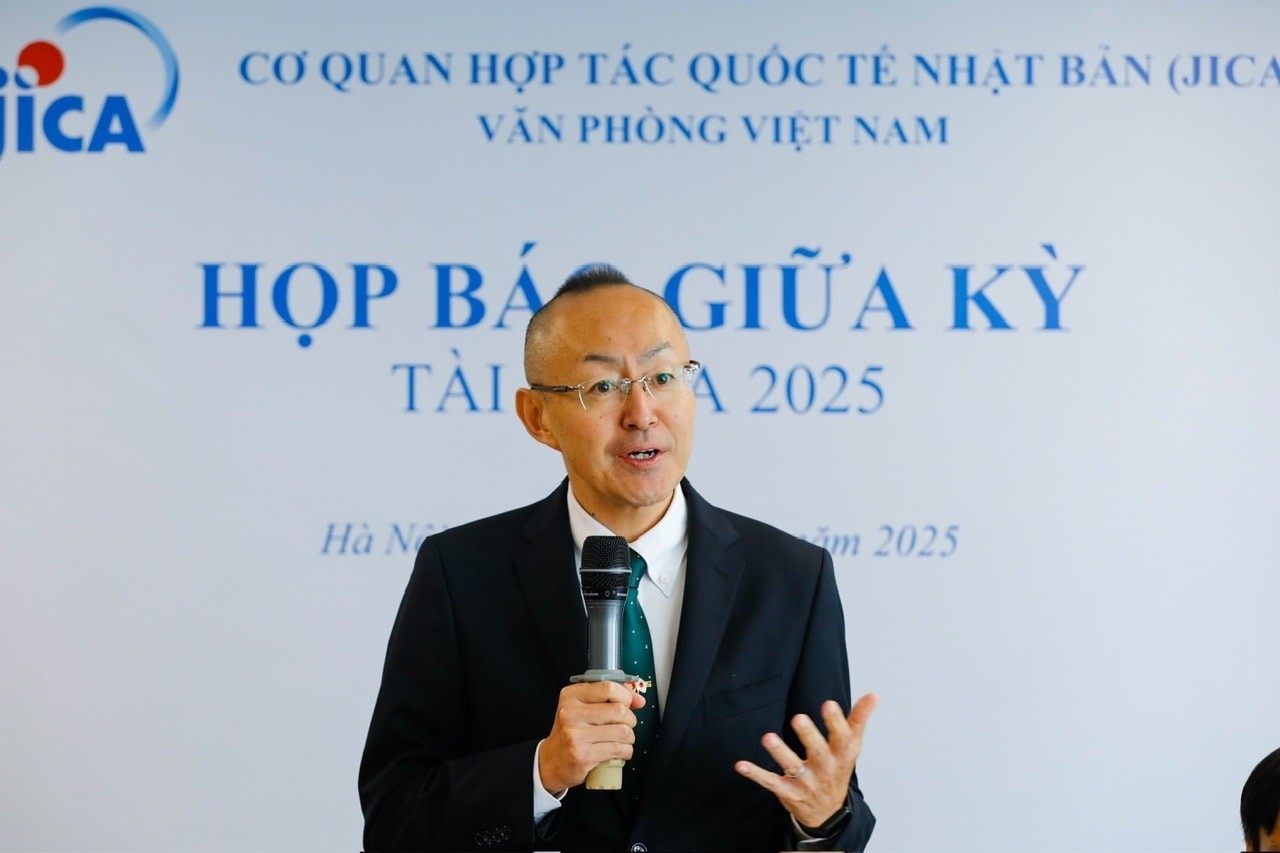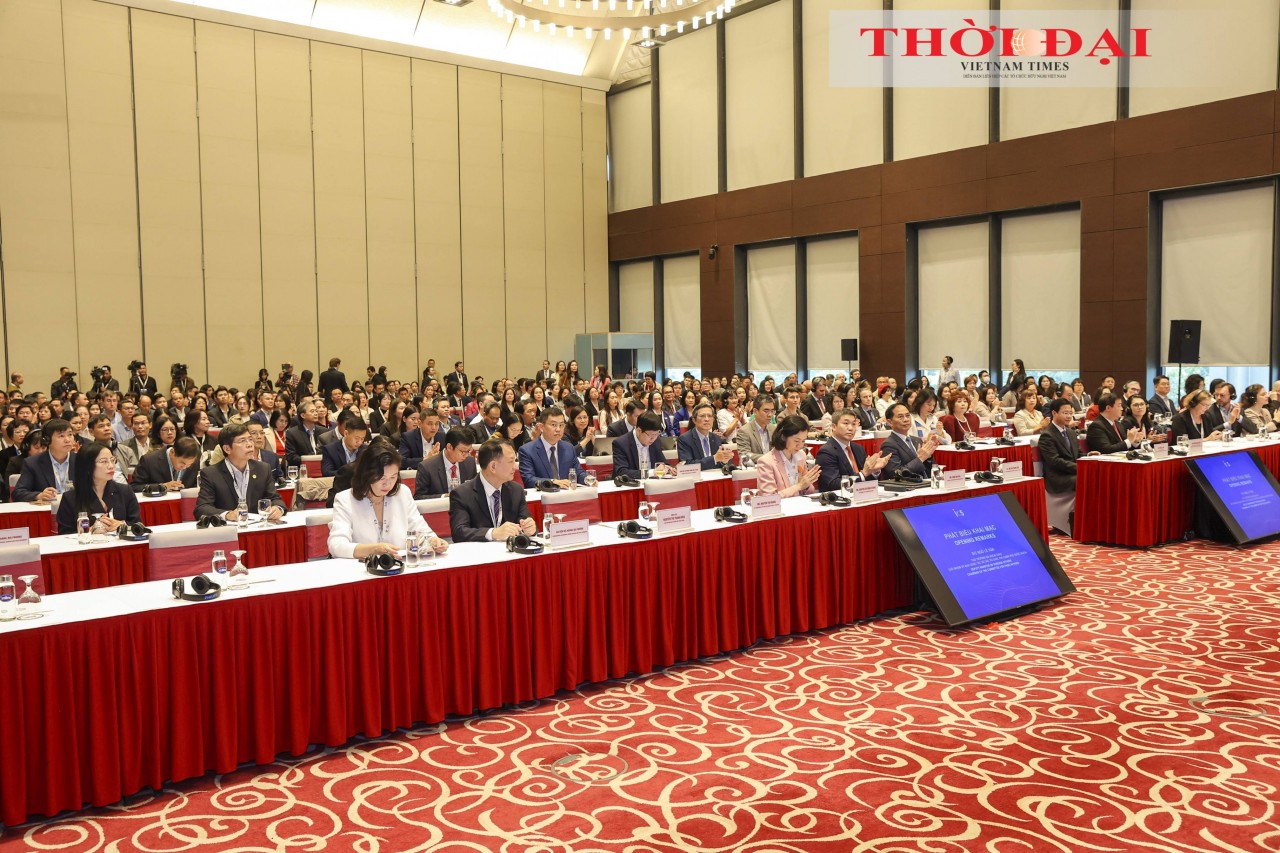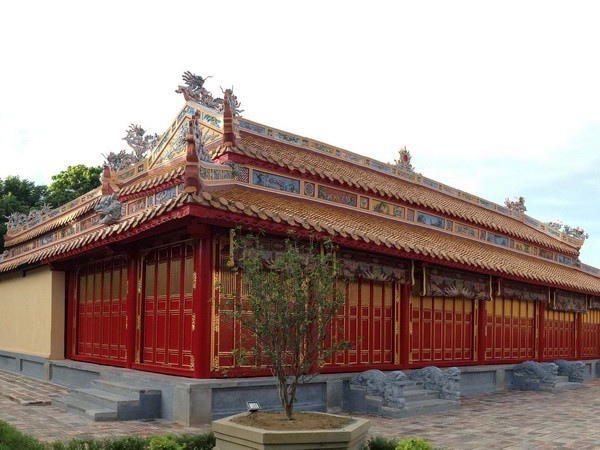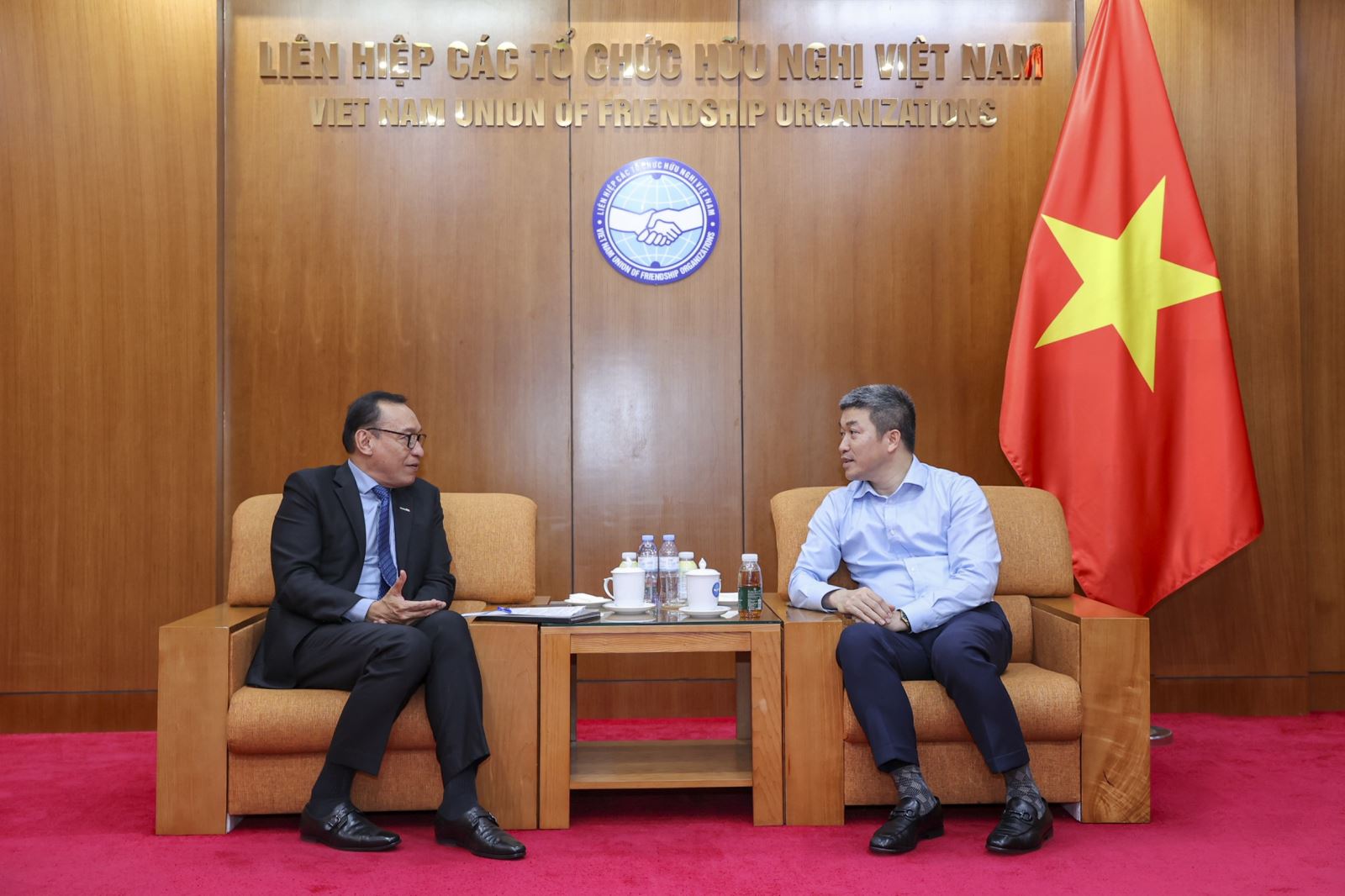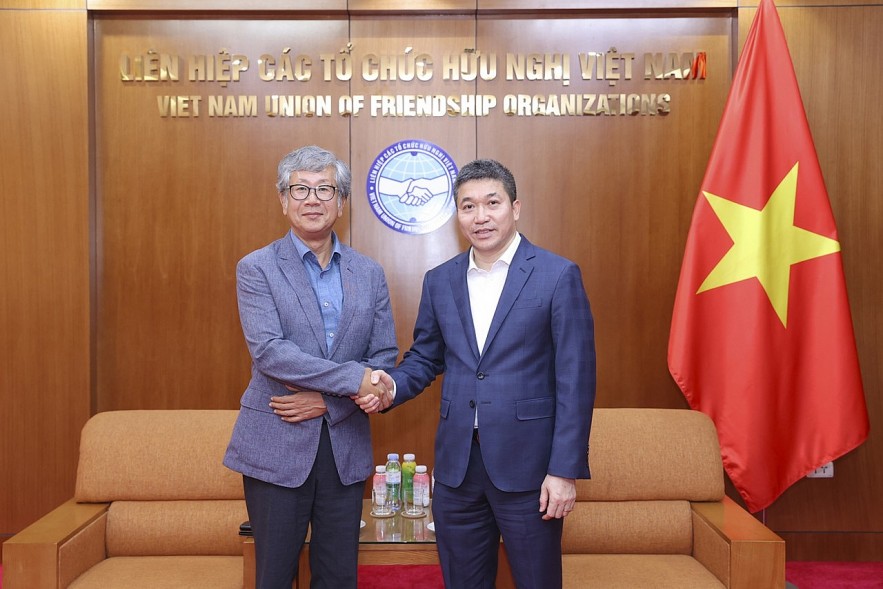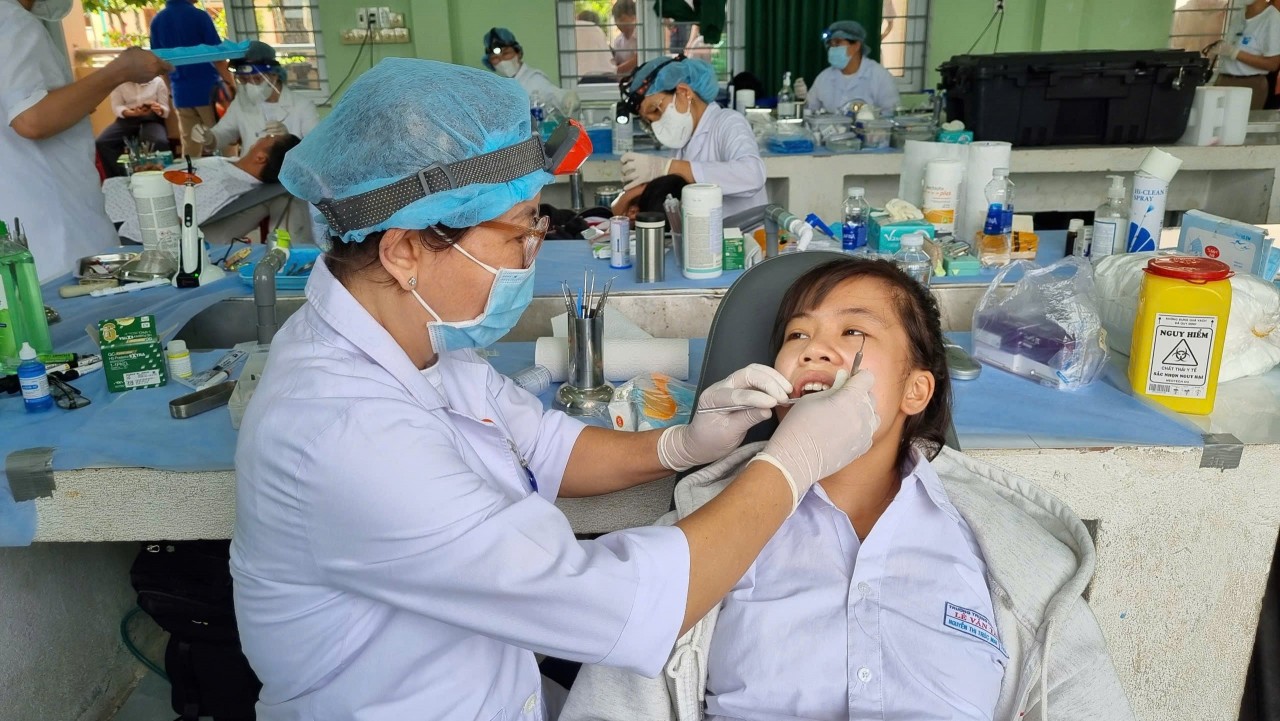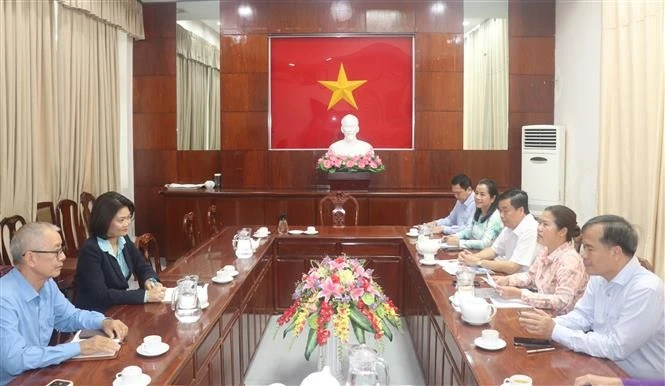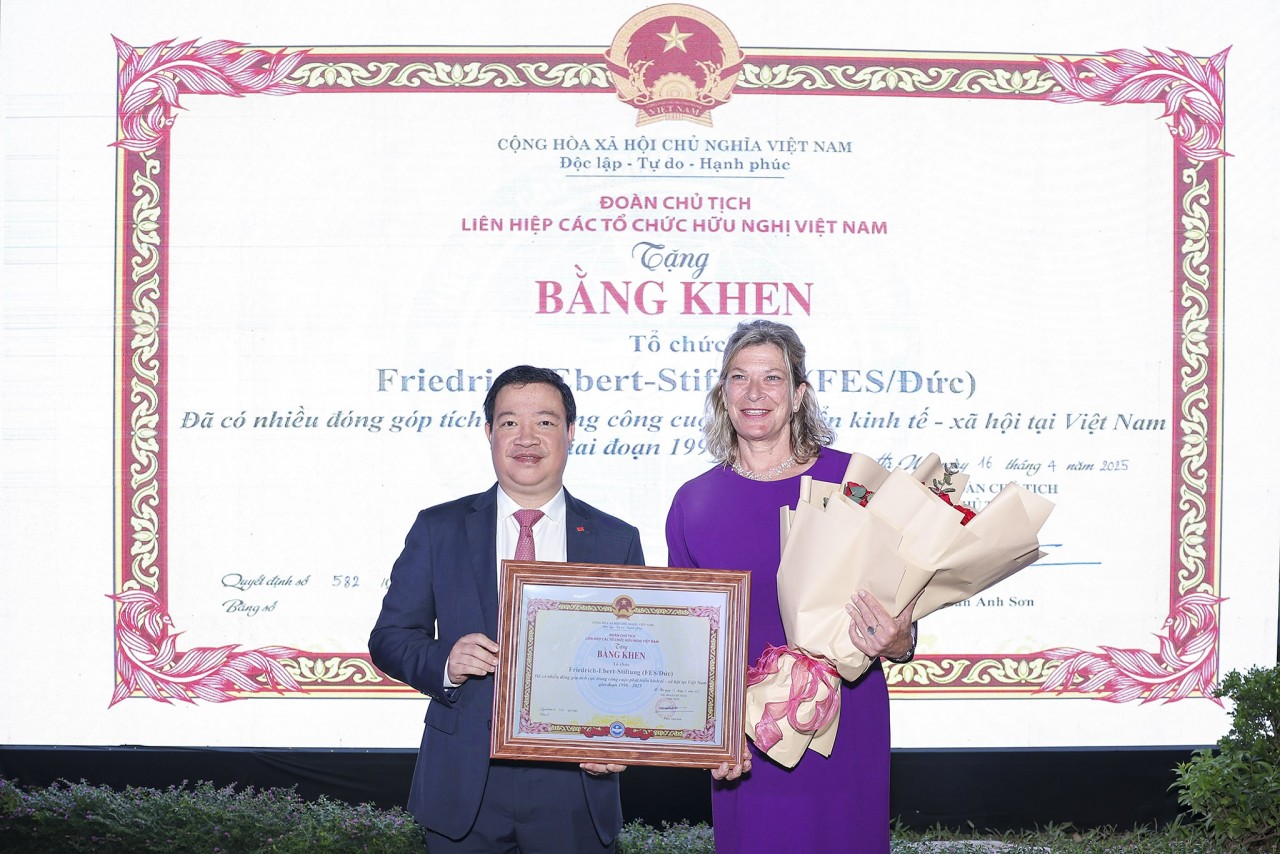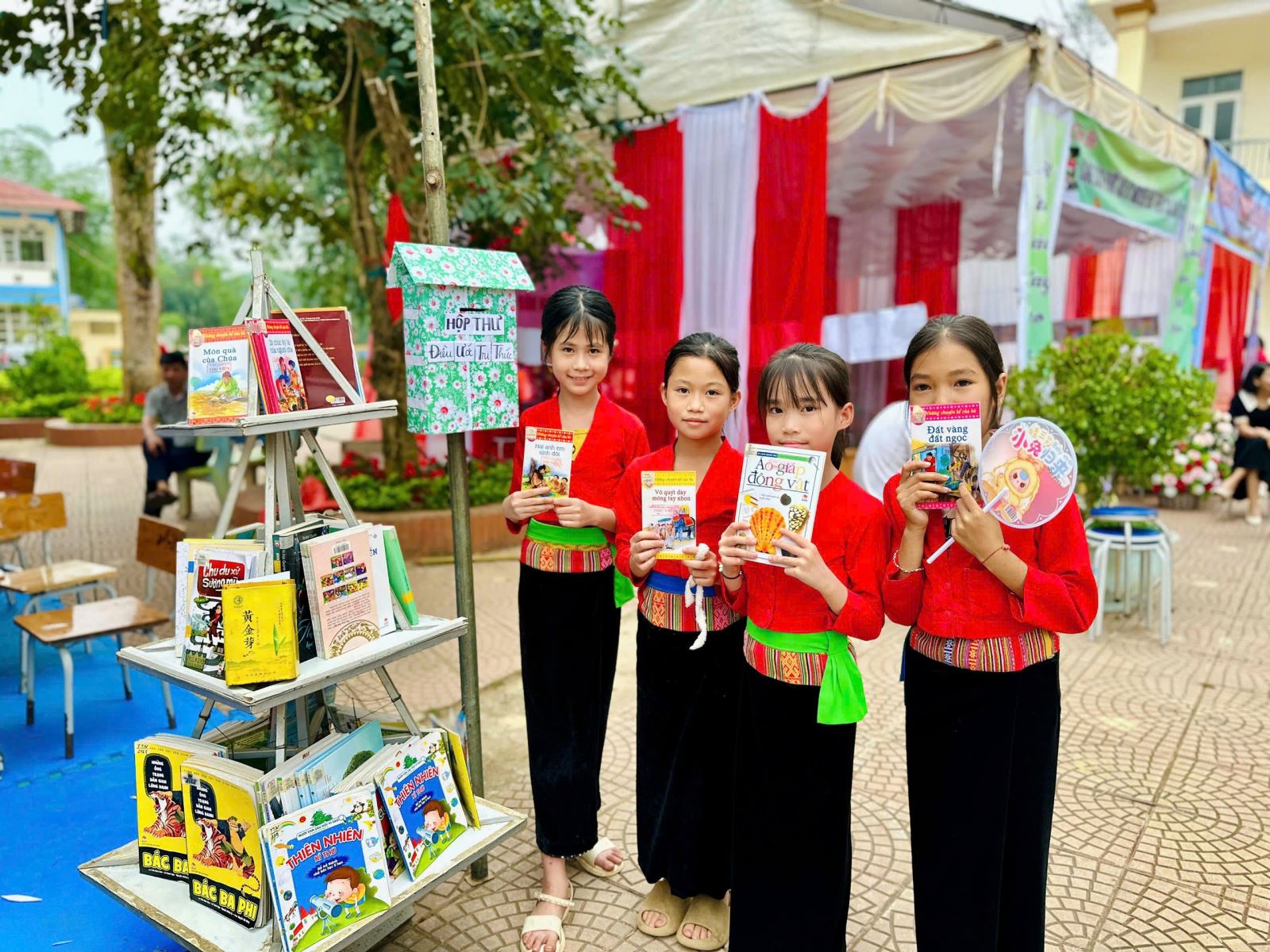The conference was attended by President of the Viet Nam Union of Friendship Organizations Phan Anh Son; Vice President of the Viet Nam Union of Friendship Organizations and Vice Chair of the Committee Nguyen Ngoc Hung; representatives from the Committee’s member agencies; leaders and staff of the People's Aid Co-ordinating Committee (PACCOM - a unit under the Viet Nam Union of Friendship Organizations); and representatives of foreign NGOs operating in Viet Nam.
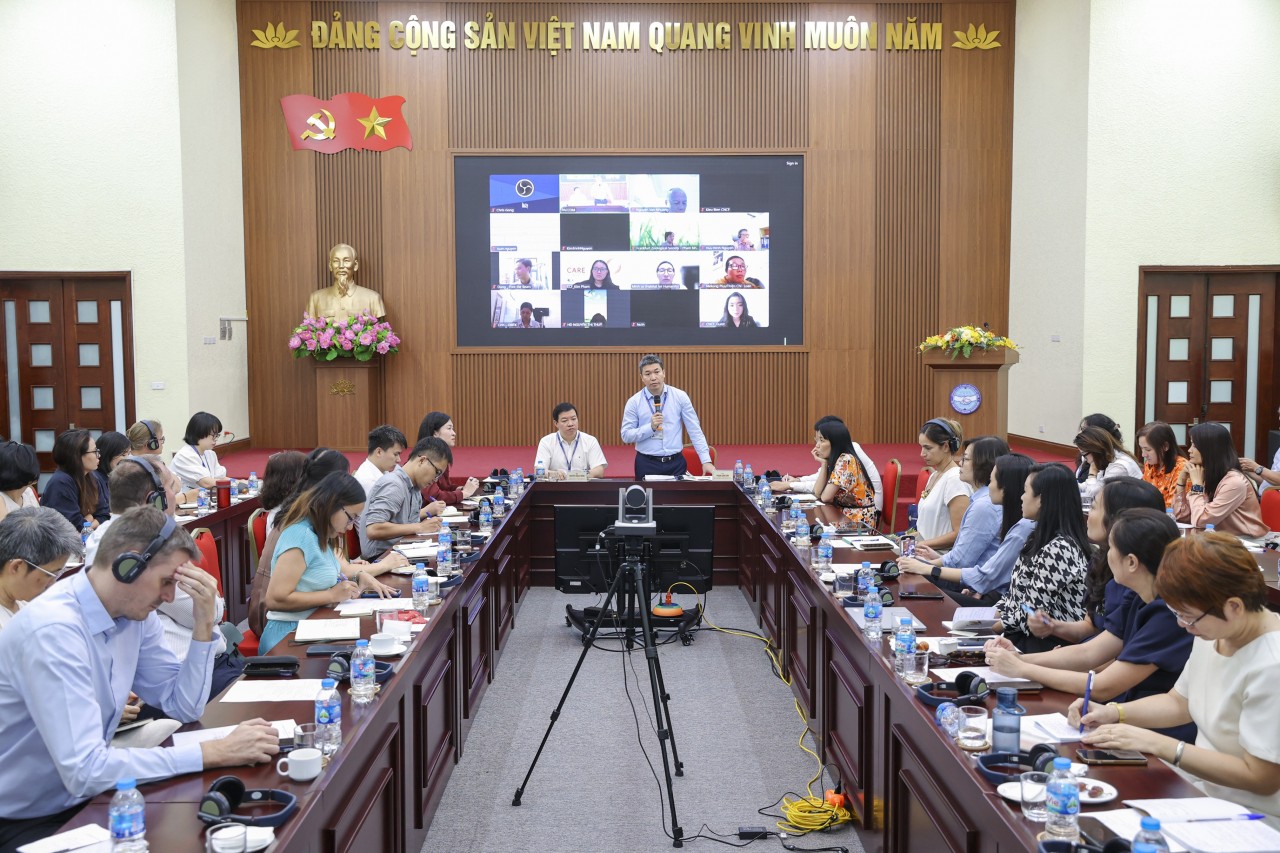 |
| On July 17 in Hanoi, the Viet Nam Union of Friendship Organizations and the Committee for Foreign Non-Governmental Organization Affairs jointly held an information-sharing conference with foreign non-governmental organizations. (Photo: Dinh Hoa) |
At the conference, participants were updated on the current operations of foreign NGOs; the coordination and management work of the Committee and relevant agencies; as well as new regulations in the context of Viet Nam’s ongoing efforts to reorganize administrative units at various levels and to build a two-tier local government model.
To help organizations overcome challenges posed by changes in administrative arrangements, the Committee has recently issued guidelines on adjusting areas of operation and provided standardized document templates to streamline procedures. PACCOM has also worked closely with the Ministry of Public Security to study and implement the registration process for electronic identification as stipulated in Decree No. 59/2022/ND-CP, and is preparing plans for thematic training sessions for organizations in the coming time.
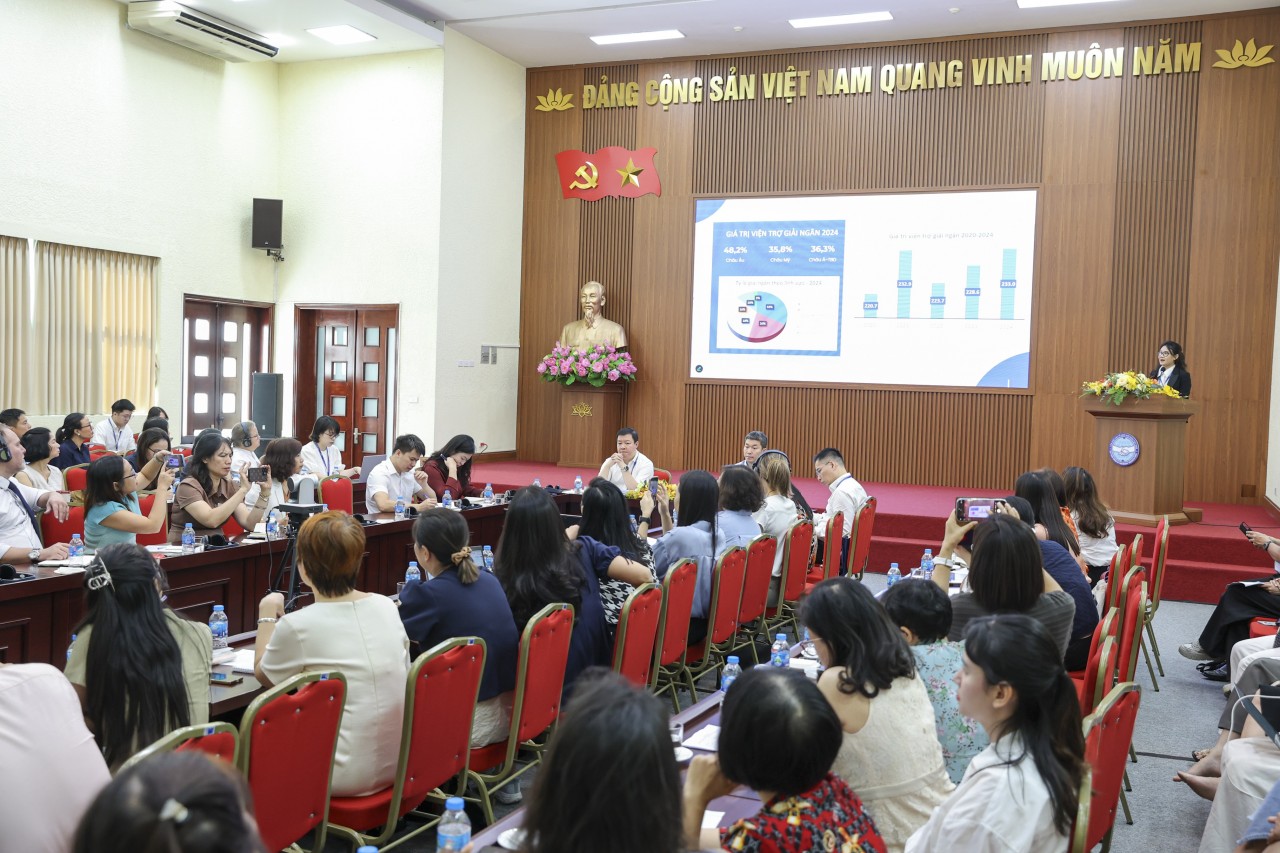 |
| Delegates listen to reports at the conference. (Photo: Dinh Hoa) |
The discussion session at the conference focused on practical obstacles such as changes in aid policies from certain countries, adjustments in operational areas due to the merger of administrative units, project registration procedures, data storage, and electronic identification. Representatives from relevant agencies provided direct responses and specific guidance to help organizations understand the regulations accurately and facilitate the smooth implementation of their activities.
Representatives of foreign NGOs attending the conference acknowledged and appreciated the efforts and support from the Committee’s member agencies and the Viet Nam Union of Friendship Organizations in recent times. Many delegates expressed their desire to continue receiving support and cooperation from relevant authorities to effectively adapt to ongoing changes both domestically and internationally.
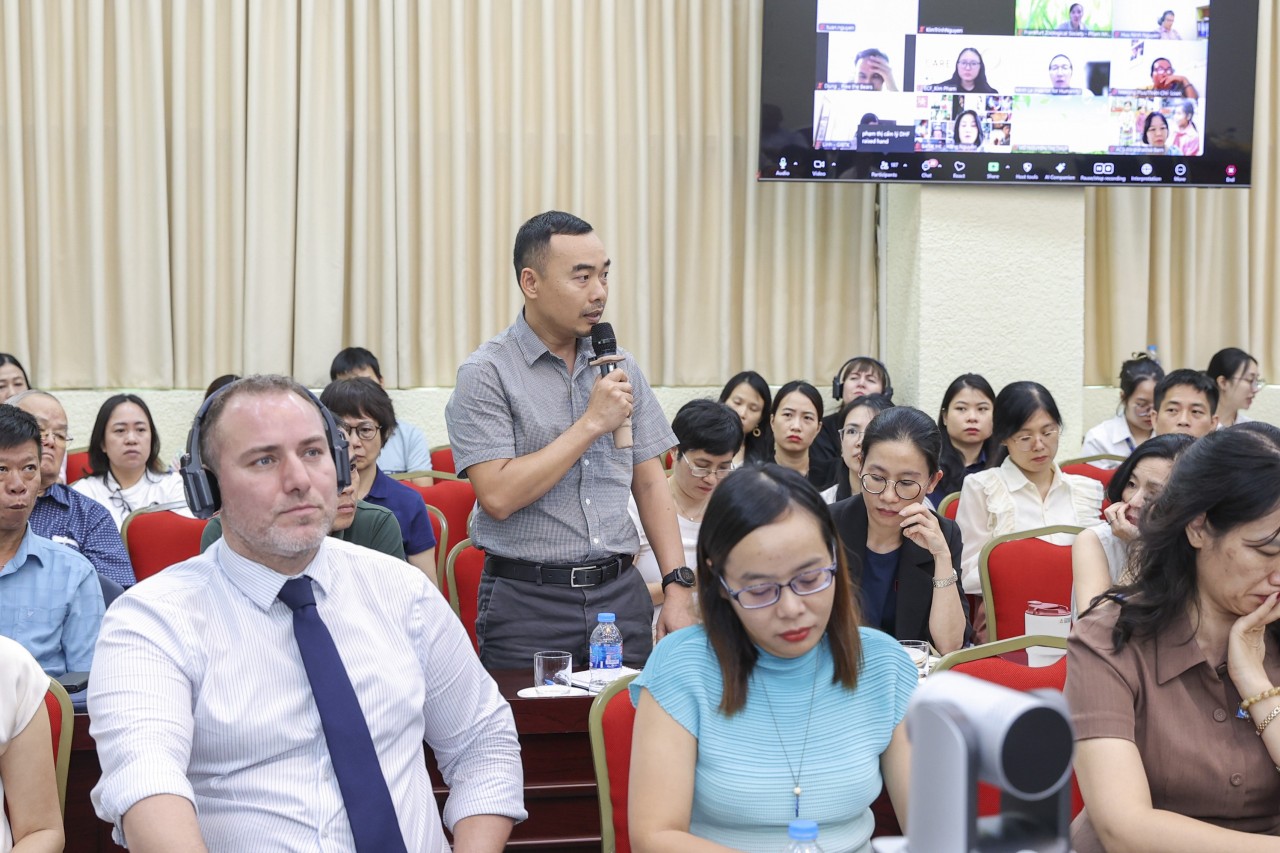 |
| Representatives of foreign NGOs speaking at the conference. (Photo: Dinh Hoa) |
Delivering the closing remarks, President Phan Anh Son recognized and highly appreciated the positive contributions of foreign NGOs over the past period. He emphasized that the Viet Nam Union of Friendship Organizations and the Committee will continue to accompany these organizations, streamline administrative procedures, and promote technological applications to improve coordination efficiency and promptly address proposals.
He suggested foreign NGOs and relevant agencies to strengthen coordination and information sharing during the implementation of activities, especially in the context of Viet Nam’s ongoing administrative reorganization, the review of the National Program on Enhancing Cooperation and Mobilizing Foreign Non-Governmental Aid for the 2019-2025 period, and preparations for the 5th International Conference on Cooperation between Viet Nam and Foreign NGOs. He noted that this is an opportunity to deepen partnerships and move toward inclusive, comprehensive, and sustainable development goals.
| According to the report presented at the conference, there are currently 378 foreign NGOs from 30 countries and territories operating in Viet Nam. In 2024, the total value of aid reached USD 233 million, focusing on areas such as social issues, health, natural resources and environment, socio-economic development, and education and training. Many organizations have proactively innovated their approaches, promoted partnership agreements, and implemented projects, dialogues, and workshops that have delivered practical benefits to communities, particularly in remote and ethnic minority areas. |
Source: VNA

